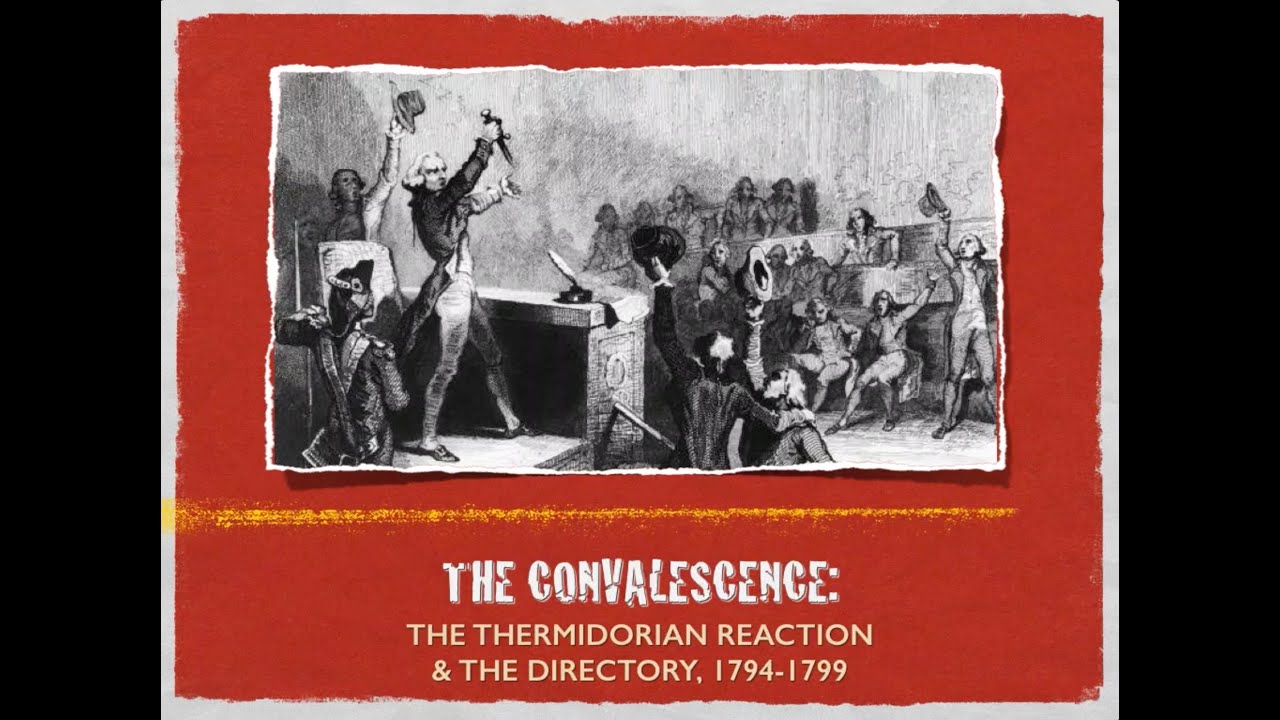The leaders of the Thermidorean Reaction, or the move toward moderation, many of them former Jacobins, now dismantled the machinery of the Terror.
They disbanded the Revolutionary Tribunal, recalled the deputies on mission, and deprived the Committees of Public Safety and General Security of their independent authority. They closed the Paris Jacobin club and invited the surviving Girondin deputies to resume their old seats in the Convention. They took the first step toward restoring Catholicism by permitting priests to celebrate Mass, though under state supervision and without state financial support.
But instability, personal insecurity, and class and caste hatred were by now rife. In Paris long-haired young bourgeois calling themselves the jeunesse don’t’ (gilded youth) went about dressed like dandies and carrying long sticks, which they used to attack suspected Jacobins. They organized the destruction of busts of Marat and forced the removal of his remains from their burial place.
The leaders of Thermidor caused an acute inflation by canceling the economic legislation of the Terror; no longer checked by the “maximum,” the prices of some foods rose to a hundred times the level of 1790, and the assignats sank so low in value that businesses refused to accept them. Popular suffering became more intense than it had ever been under the Terror. Desperate, half-starving Parisians staged several demonstrations against the Thermidoreans during 1795, clamoring for bread and lower prices.
The Thermidorean Reaction concluded with the passage of the constitution of 1795, the last major act of the Convention. The Thermidoreans wanted both to retain the republic and to assure the dominance of the propertied classes. The new constitution therefore denied the vote to the poorest quarter of the nation and required that candidates for public office possess considerable property. It established two legislative councils, the Five Hundred and the Elders. The Council of Five Hundred nominated and the Elders chose five persons who headed the executive Directory, which otherwise was almost totally independent of the legislative councils.
The constitution of 1795 demonstrated that the most radical phase of the Revolution had passed. But three weeks before it was to go into operation, more trouble broke out in Paris. The counterrevolutionary insurgents were put down in the massacre of Venderniaire (October 5, 1795), dispersed in part by the young Napoleon Bonaparte, who commanded troops loyal to the Thermidorean Convention. The first winter of the Directory (1795-1796) brought France the most intense popular suffering of the revolutionary period as a consequence of inflation, chronic shortage of food, and extreme cold. Thereafter, the situation steadily improved, thanks to good harvests and the Directory’s vigorous attack on economic problems.
The new regime levied high protective tariffs, both as a war measure against England and as a concession to French business. Again responding to business pressure, it destroyed the plates used to print the assignats and in 1797 withdrew paper money from circulation. The return to hard money required stringent government economies, which the Directory instituted. Tax collection was made more efficient, and France enjoyed considerable loot from victorious wars. The Directory eased the crushing burden of the national debt by repudiating two thirds of it and gave the old unit of currency, the livre, a new and lasting name, the franc.
The Directory easily suppressed the amateurish Conspiracy of the Equals (1796-1797), sponsored by François Gracchus Babeuf (1760-1797), who has come down in socialist teachings as the first modern communist. The Directory experienced much greater difficulty, however, in steering a cautious middle course between the two extremes of restoring the monarchy and reverting to Jacobin terrorism.
The constitution of 1795 was repeatedly violated, as the directors and the legislative councils clashed, each seeking to shift the political balance in its own favor. The councils fired directors before their terms were finished, and directors refused to allow duly elected council members to take their seats. Disgruntled politicians and apprehensive moderates, fearing the collapse of the regime, began to maneuver for the help of the increasingly successful army. The result was the coup d’état of Brumaire (that is, October) in 1799 and the dictatorship of Napoleon.

